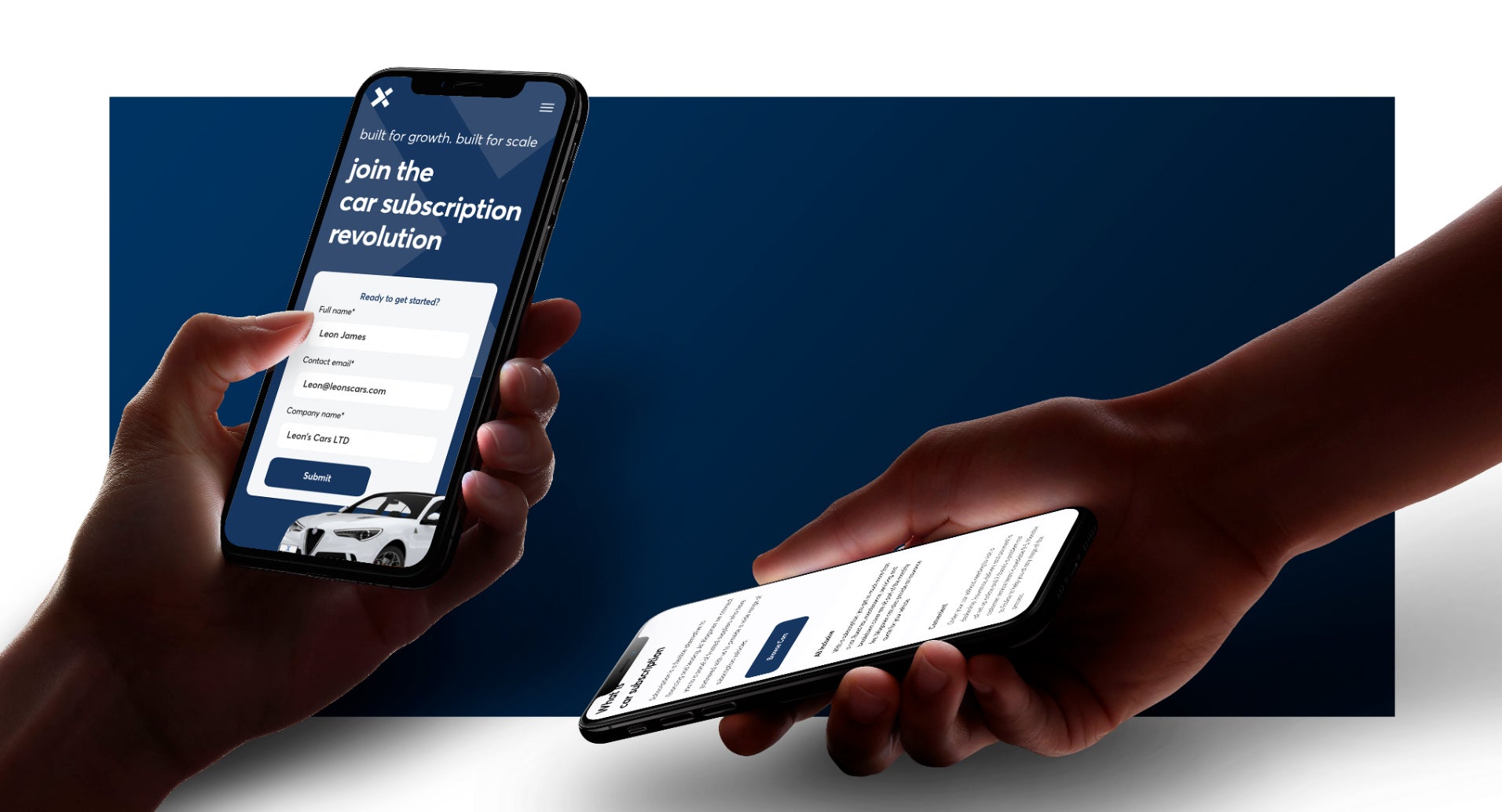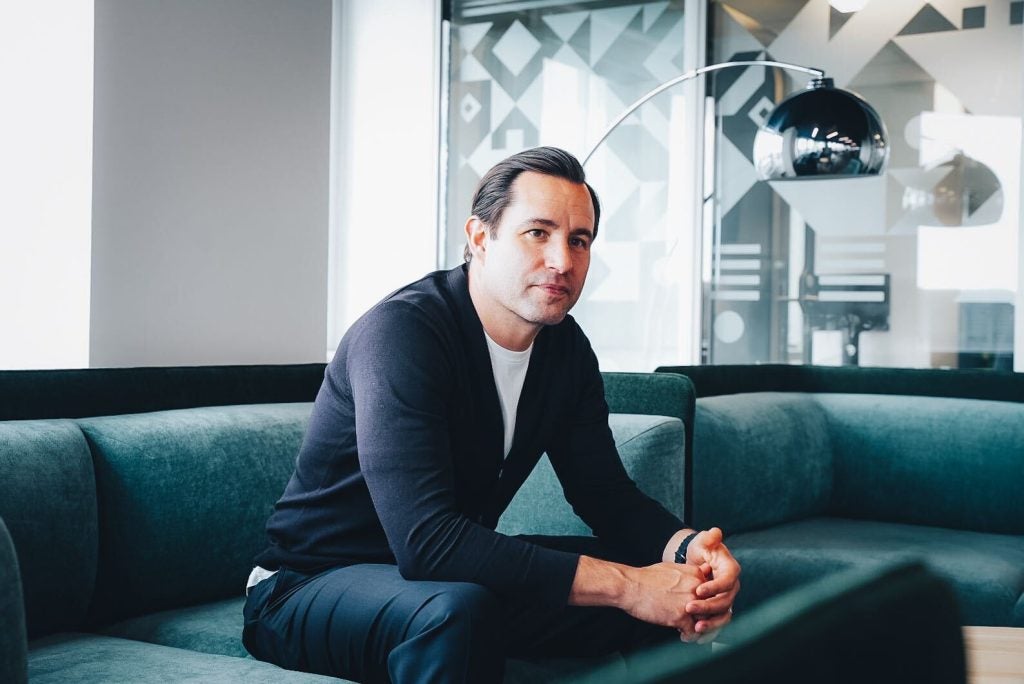
The UK government’s recent decision to delay the ban on the sale of new petrol and diesel engine cars from 2030 to 2035 has proven controversial. Indeed, the decision came as a surprise for many within the industry who were planning towards the 2030 deadline.
One section of the industry which stands to be impacted is the subscription segment, where many are usure whether this announcement will bolster or undermine EV subscriptions.

Discover B2B Marketing That Performs
Combine business intelligence and editorial excellence to reach engaged professionals across 36 leading media platforms.
We spoke to Toby Kernon, CEO of Wagonex, to discuss his thoughts surrounding the announcement as well as to touch on what this means for the company.

Just Auto (JA): How did the idea for Wagonex come to be?
Toby Kernon (TK): My background is in finance. I have been self-employed since 1998. I have had a lot of experience in multiple different asset classes around bank lending, government bonds and now auto finance.
I came into the world of tech start-ups about ten years ago. The idea of Wagonex came from my love of cars, but also frustration in the way that the car industry worked in terms of different financial products being offered. I thought there ought to be more flexible, all-inclusive and customer-centric solutions for customers. The subscription model seemed to be the perfect solution and seven years in the market is really starting to pick up for car subs.
The government has recently announced a push-back on the sales ban of new ICE vehicles until 2035. What are your thoughts on this?
As an EV driver it’s a real shame for the pace of adoption of EVs. I think there’s obviously a lot of uncertainty around range anxiety, the advances in technology and the price of EVs. EVs are still very much in the early adopter phase, and unfortunately, I think it’s still going to remain in the early adopter phase for an extended period which is a real shame.
As an EV driver it’s a real shame for the pace of adoption of EVs.
I hope it doesn’t delay all of the work going into the public charging infrastructure because that is and remains a problem at the moment, particularly in London and areas where there’s a large concentration of early adopter EV drivers, and a real shortage of charge-points.
How does this announcement impact Wagonex?
Subscription is growing. It’s tipping into the mass-market phase. We’ve got to a point where there’s a blend of 75% ICE, 25% EV on our platform. It’s very much indicating that we’re still in that early adopter phase for EVs.
We’ve always tried to make sure that we give our customers choice; there’s a variety of vehicles across ICEs, hybrids and EVs. I think that we are suitably hedged to continue operating and offering our customers a certain service that we make work for them.
The extension in the timeframe adds uncertainty to those who want to commit to EVs. It could very well bolster the subscription market as a try-before-you-buy, or try because you’re not sure. Customers can test electric vehicles for one month, or up to 48 months depending on their level of commitment. Perhaps that gives us an opportunity to support the scenario of EV adoption alongside an increased level of uncertainty.
For the industry, I think it adds to uncertainty.
For the industry, I think it adds to uncertainty. There has always been an uncertainty around the residual values of electric vehicles for fleets and fleet managers, and the companies that make the cars. If there is that much uncertainty in the industry, how can we expect consumers to have a level of certainty in the decision to adopt EVs? Unfortunately, uncertainty is not helpful for either the industry or consumers.
Do you feel that the original 2030 goal was achievable?
I think that 2030 target was always a stretch. However, the industry has made a significant investment when it comes to EV charging infrastructure. It’s not clear whether the charging infrastructure would have been able to keep up with the demand.
It will soon be 2024. Perhaps a decision could have been reviewed in one, two, three years’ time, when closer to the date. The government could have had more visibility on what they’re able to achieve within the seven-year period.
What is the company focusing on for the remainder of the year and 2024?
We have spent a large portion of the year improving our products for our industry partners. Over the next three to six months, we’ll have a more concentrated focus on improving the journey for our customers.
We are a small business with finite resources. We’d love to be able to do everything all at once, all at the same time. So, the slight shift in focus towards customers, obviously not forgetting core partners, is very important to us.
There is an opportunity to build a customer base around electric vehicles. In particular, we’re seeing second life, used EV stocks increase – that offers customers a competitive price point for them to try a subscription with a low level of commitment. It also allows fleets to monetise those second life vehicles.
We think that is an industry sweet spot that works well for fleets, manufacturers, independents and/or dealerships who want to get into this space, where there is a growing market in EV adoption with the right price point, the right vehicles packaged in the right way.






